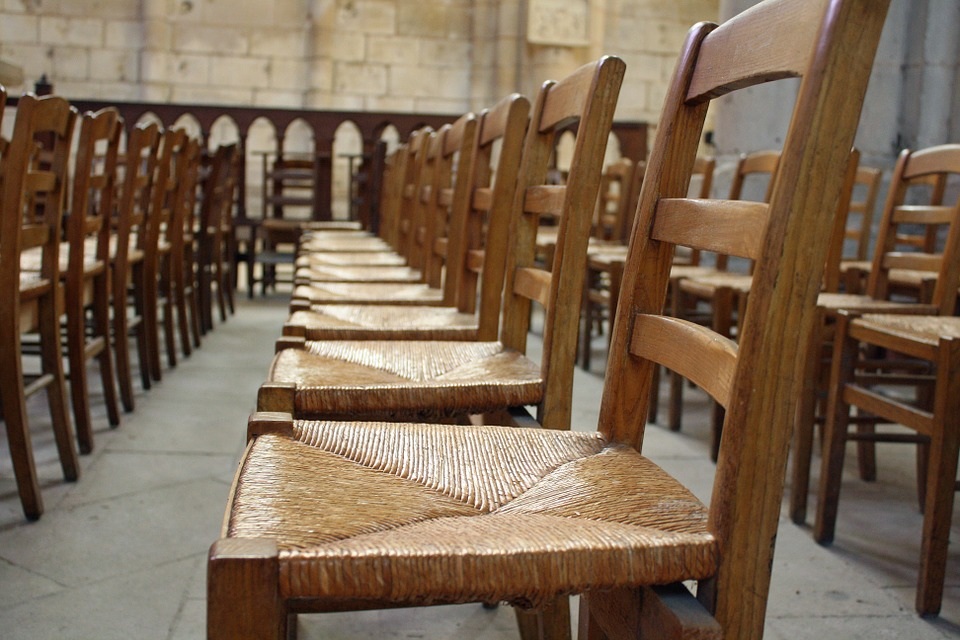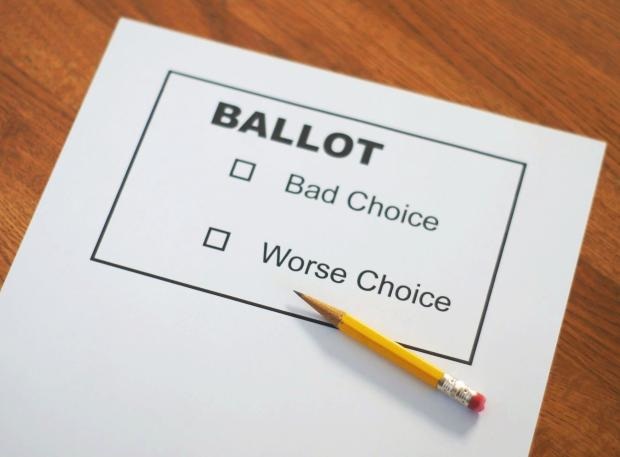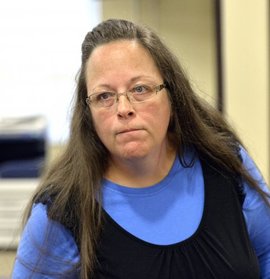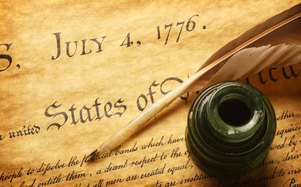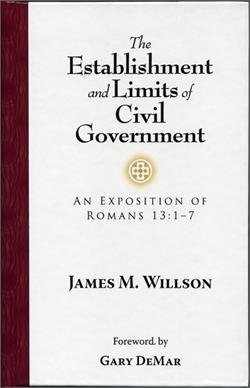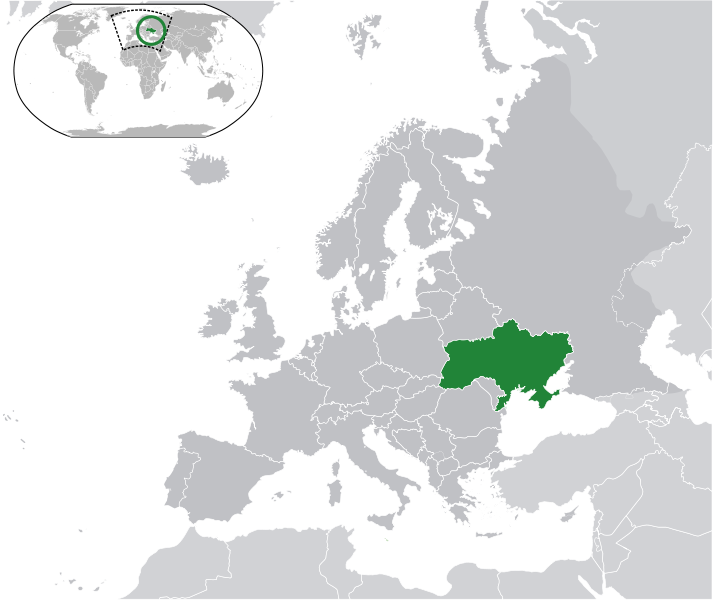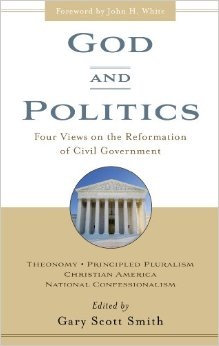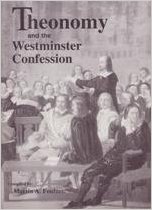While good-intentioned as these arguments may be, I reject them for at least the following reasons: (1) The political atmosphere is only a byproduct of the cultural war, which we evangelicals as a whole have given up on long ago. If we're to worry about tainting our witness to the world, it must start first and foremost with the cultural war, (2) We have a solid history in Scripture where our fellow-saints were able to live in good conscience, given the circumstances around them, with supporting immoral people in office (or a position of political power) and even helping them attain such a position. The situation we face today is similar. And we would do well to follow their example. (3) Seeking the world's approval should be the furthest thing from us - even when it comes to politics.
What probably didn't come across in my last post as much as I should have stressed, is that either of these options (Trump or Hilary) is a judgment from God (Prv. 16:4; cf. 1 Sam. 8:7-8, 9-18).
I did say it in the last post, but I probably didn't stress it enough.
And I'm certainly not going to tell you to vote for Hilary. What I am going to do is write down the principles I believe we have in Scripture when our nation is faced with such a choice as is before us today, and what I plan to do in light of them.
But before I do that, let's go in reverse order as to why I'm not going to tell you to [fill in the blank]:
And often enough (and what I believe we've experienced) He installs wicked rulers, in part, as a judgment for the sinful acts of a nation (Prv. 16:4; cf. Judg. 2:11-15). Of course, thankfully, in His mercy He relents from judgment when a nation collectively repents (Jon. 1:2, 3:10; cf. 2 Chron. 7:14; Dan. 9:1-19). That's something to which we ought to pay great attention in our lives today!
Repentance is still an option; and a viable one at that! But what of what kind of repentance are we speaking? And how do we go about doing it?
Obviously, like in any area of life, we need to take into consideration what the whole Bible says about a situation, and not just limit ourselves to pet proof texts. Yes, our true citizenship is in heaven (Phil. 3:20), yet our marching orders from the Lord Jesus Christ, to whom all authority in heaven and on earth has been given, are to disciple all nations of the world (Mt. 28:18-20). Discipling includes applying His Lordship to every area of life - even the politics of this world (Rom. 11:36, 13:1-7; 2 Cor. 10:5).
All I wish to do is to call attention to the false dichotomy being imposed in the chant: "Do your job or resign." For one thing, Kim Davis, by neglecting to issue marriage licenses to homosexual couples, is doing her job. The State of Kentucky Constitution reads thus:
Greater love has no one than this, that someone lays down his life for his friends.
His lament was for both of them (2 Sam. 1:23): Jonathan, who was like a dear brother to him (2 Sam. 1:26), and also Saul (2 Sam. 1:24), who tried to kill him (1 Sam. 19:1, 20:33). David lamented and was grieved over both of their deaths that occurred as a result of the fallen-world calamity we call war.
People feel pain. The loss of loved ones and even the loss of past enemies can reduce the strongest of men to tears beyond counting. And I say again, this is no small thing. War is not a trivial matter. In the words of one of my good friends: "War is a hellish death machine, an unfortunate consequence of fallen man's condition." I said, "You are gods, sons of the Most High, all of you;
Herod the Great is a prime example of an unjust ruler. It wasn't that his power was being threatened that spurred his unjust decree to kill all children two years of age or under (Mt. 2:16). It was that he thought of it as "his" power at all. He was in a role appointed by God to act under God's authority carrying out God's vengeance upon evildoers (Rom. 13:3-4). Ignoring that, he carried out his own vengeance on innocent lives.
Consequently, in the high court of God our only escape from His just judgment for our sins is for us to place our trust in the Lord Jesus Christ, who - though He was sinless - laid down His own life for His sheep, so that those who believe in Him will have life eternal (Jn. 10:11, 20:30-31).
But regarding the court of humanity, the lives of John Crawford III and Angela Williams, were innocent and not deserving of death. And I think it is important to remember this fact that two innocent lives were ended in this tragedy. The reason I regard this a tragedy is because they simply did not deserve to die. And yet one of them was shot and killed on sight, while the other, suffering from a heart condition aggravated by the events, died as a result of the shooting. It is in times like these where we cannot simply dismiss the events as a tragic loss and move on with our lives. Innocent people were killed. The whole community, along with the families of John and Angela, are, or should be, crying out, "Where is justice?"
In order to avoid as much misunderstanding as I can, let me clarify what I just said. Firstly, citizens of the United States have a moral duty to bring peace to the Middle East. This does not, by necessity, mean the government (by use of military power) has a moral duty (or even a right) to bring peace to the Middle East (though it could be the case in certain circumstances). Secondly, we have a duty to bring peace to the Middle East. This does not, by necessity, mean our goal is to bring democracy.
So how do citizens of the U.S. bring peace to the Middle East?
Even in my lay-level reading of the document it seems that a general survey of the Declaration of Independence will provide us with at least two things to consider during this time of year - and especially during this time of our own nation's history.
These two things will provide (what I believe to be) some thoughtful considerations of which to be mindful. So it's the 4th of July - Independence Day! What really was it from which we were declaring our independence? And by what authority were we doing so? Let's consider... Book Review: The Establishment and Limits of Civil Government: An Exposition of Romans 13:1-75/27/2014
Written in the mid nineteenth century, the style was noticeably different from modern expositors. It was engaging; but you really have to be paying attention the entire time (i.e. this book is not one of those you can read with a toddler running around being all cute and cuddly and handing you things - you'll need to be in your study, alone).
I'm okay with that though for the intended purposes of this post.(2) My point in all this is not to explain the relationship between those three political sovereigns (or two - again I'm still unclear on the details), but my point is simply to ask, from a Biblical perspective, how should the U.S. be involved?
Should the U.S. impose sanctions against Russia? Should the U.S. send aid to Ukraine? The answers to those questions will, in part, depend on how we define the U.S. Should the U.S. (as in the U.S. government) impose sanctions against Russia? Should the U.S. (as in private American citizens) send aid to Ukraine? Here is where it gets a little more sticky. But regardless of how we're defining the terms and how sticky the situation is, as Christians, we still need to think of it in terms of Christian ethics (that is, in terms of what we ought to do regarding the situation according to God's Word and the Lordship of Christ in our lives). And indeed, we ought to do something... But what is it that we ought to do?
Among those four views, with the exception of one (which will be explained later), they are all saying the same thing - the law of God is to be the very foundation from which all our modern laws are to be derived.
To [Israel] also, as a body politic, he gave sundry judicial laws, which expired together with the state of that people; not obliging any other now, further than the general equity thereof may require. What "the general equity thereof may require," of course, is something that needs to be understood in light of the historical, grammatical context in which the statement was written.
If the authors of the Westminster Standards truly believed that the penal sanctions of the civil aspect of the Mosaic Law had no abiding validity, then understood in today's English it would seem this statement invariably settles the matter. But did they actually believe that? And if not, what is meant by that statement? |
Categories
All
|
